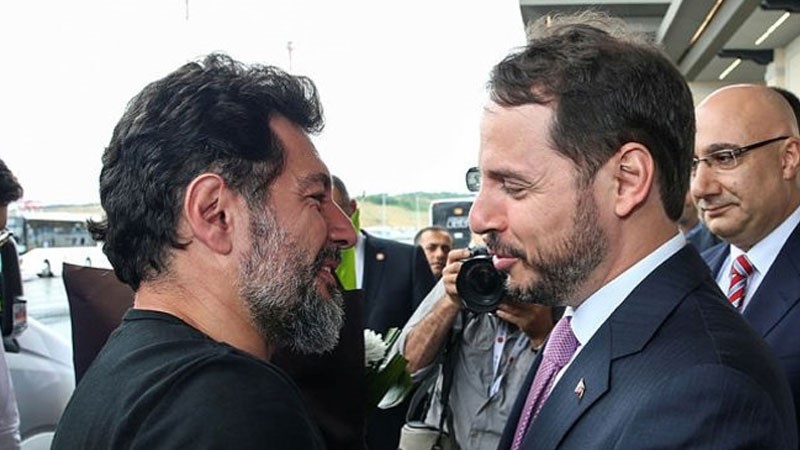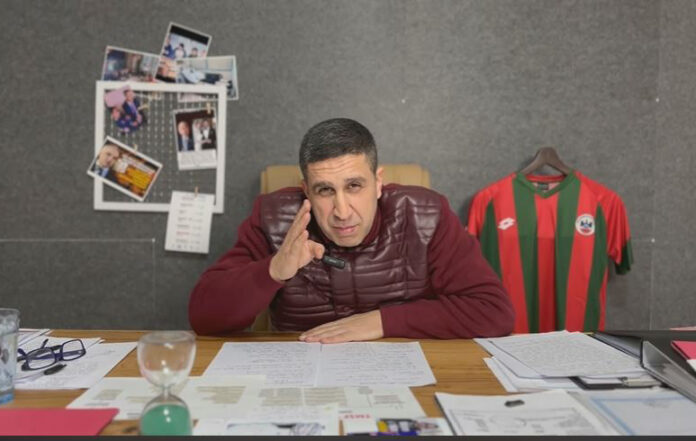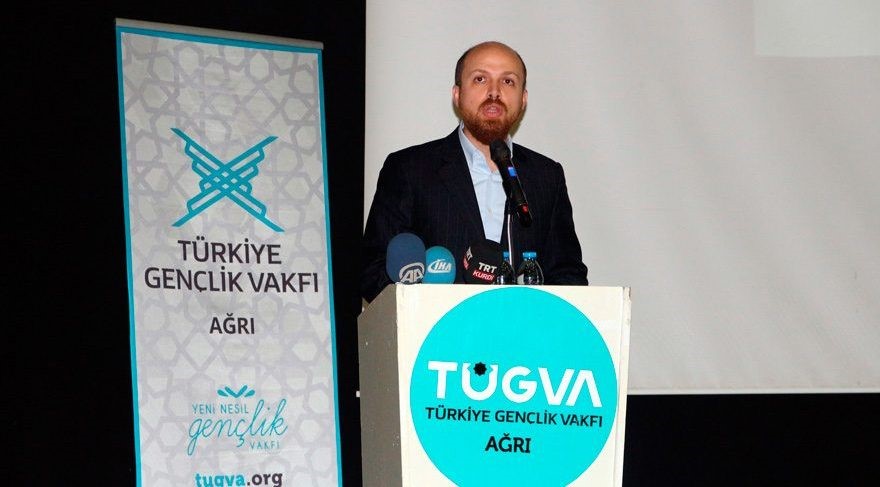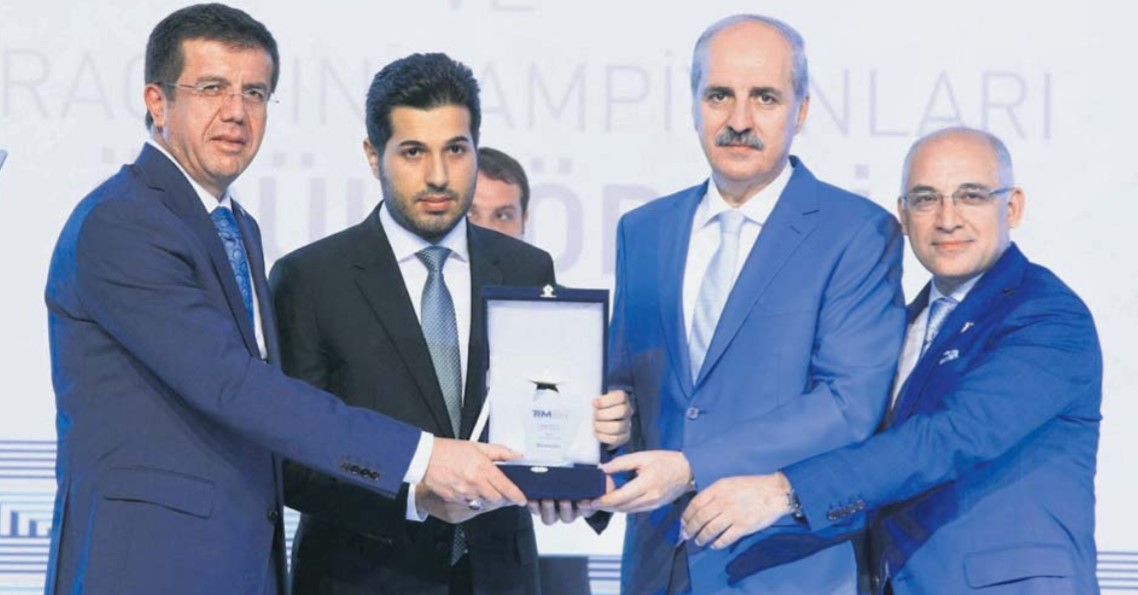Levent Kenez/Stockholm
Hakan Atilla, the former deputy general manager of Halkbank who was convicted of conspiring to violate US sanctions on Iran by a federal court in Manhattan in 2018, shared on Instagram on Monday that while he was heading to Cyprus for a vacation with his family, his passport was seized at the airport and he was taken to a police station and notified that he was prohibited from leaving the country. Stating that he had served the country for years and defended it, referring to his trial in the US, Atilla added a note saying, “The biter gets bit.”
Reminding that he had previously been detained at an airport in New York, Atilla said he was used to this but objected to the treatment he received when with his family.
Atilla, who was sentenced to 32 months in prison after standing trial in the US District Court for the Southern District of New York, returned to Turkey on July 23, 2019 from the US, where he had been jailed for 28 months. He was greeted like a hero at the airport in İstanbul by Berat Albayrak, the then-economy minister and son-in-law of Turkish President Recep Tayyip Erdogan. Atilla was later appointed to the prestigious position of head of the İstanbul Stock Exchange (Borsa Istanbul). Many people at the time considered this appointment to be the equivalent of “hush money.”

Atilla unexpectedly announced his resignation on March 8, 2021. The Turkish media reported that he was uncomfortable with some of the government’s demands.
Atilla’s name has recently come to the fore again with allegations of illegal money transfers related to Iran.

Muhammed Yakut, a formerly pro-government businessman who made claims about figures close to President Erdogan and his Islamist ruling party in videos he broadcast on YouTube, said Erdogan’s son Bilal Erdogan, his son-in-law Berat Albayrak and several former ministers laundered a large sum of money by issuing false documents as if they were trading with Iran through Aktifbank.
Aktifbank belongs to businessman Mustafa Çalık, who is close to Erdogan, and Albayrak served as the general manager of Çalık’s holding between 2007 and 2013.
Yakut claims that money transfers were made to nonexistent Iranian companies and that he himself visited Mustafa Çırak, chairman of the Presidential Security and Foreign Policy Board and former deputy undersecretary of the Turkish intelligence agency (MİT), showing him documents of illegal bank transactions amounting to 1.2 billion euros.

Indicating that Çırak was shocked when he saw the documents, Yakut added that he had handed over the money receipts and Swift codes.
On April 19 journalist Serdar Akinan, who interviewed Yakut on his own YouTube channel, was detained and questioned by the prosecutor’s office. In statements he made after he was recently released, he revealed that he, too, was asked about money laundering claims.
Akinan told the prosecutor that he asked Atilla about the allegations concerning Aktifbank before the interview with Yakut and that after Atilla told him they were true, he decided that Yakut’s revelations were serious and that he was worth interviewing.
The ban on Atilla’s travel abroad was implemented immediately after Akinan’s detention since Atilla told Turkish media yesterday that he had traveled abroad many times before and that the ban was new, strengthening the possibility that the ban is related to Atilla’s statement to Akinan.
Atilla stated that the reason for the travel ban was not explained to him and that such a prohibition can only be imposed with a court decision. Most likely, an investigation has been opened into Atilla or a criminal complaint has been filed against him. It wouldn’t be surprising if Atilla, who is currently free under the travel ban, will be detained the next time he speaks out given the fact that this is how things work in Erdogan’s Turkey.
Last year, after his resignation from the İstanbul Stock Exchange, allegations were made against him in the pro-government media, which had treated him like a hero until then. Atilla was accused of making disclosures that harmed Turkey during his trial in New York. Atilla revealed for the first time important information about his trial in a written statement he sent to the pro-government Sabah daily, which had made accusations against him. Atilla, who was accused of not voicing the claim that Halkbank has immunity during his trial, stated that his family, himself and his lawyers many times requested that the Turkish Embassy in Washington, D.C., communicate to US authorities that he was a state official and thus had immunity. He also added that the records of his requests are available.
Atilla previously said the passport of his wife, who wanted to visit him while he was in prison in the US, was canceled and that a travel ban was imposed on her, a clear message that his family in Turkey would be in trouble if he testified against the bank and the Erdogan family during his trial.
In 2019 US federal prosecutors in the Southern District of New York indicted Turkish state lender Halkbank (Türkiye Halk Bankası A.Ş.) on six counts including fraud, money laundering and sanctions offenses related to the bank’s participation in a multi-billion dollar scheme to evade US sanctions on Iran.
According to the indictment, between 2012 and 2016, prosecutors alleged that Halkbank and its officers, agents and co-conspirators directly and indirectly used money service businesses and front companies in Iran, Turkey, the United Arab Emirates and elsewhere to violate and to evade and avoid prohibitions against Iran’s access to the US financial system, restrictions on the use of proceeds of Iranian oil and gas sales and restrictions on the supply of gold to the government of Iran and to Iranian entities and persons.
Halkbank knowingly facilitated the scheme, participated in the design of fraudulent transactions intended to deceive US regulators and foreign banks and lied to US regulators about Halkbank’s involvement, the indictment states.

US federal prosecutors previously charged nine defendants, including bank employees, the former Turkish economy minister and other participants in the same scheme. On October 26, 2017 Reza Zarrab, the key suspect in the case, pled guilty to the seven counts with which he was charged. He became a government witness who confessed he had bribed Turkish government officials.
Ankara has described the Halkbank case as political, arguing that Halkbank has immunity from prosecution in the US because it is a state bank. In 2022 Halkbank lawyers claimed that according to the Foreign Sovereign Immunities Act (FSIA), it cannot be tried in a criminal court in the US. The federal court, however, found its claim unjustified, upon which Halkbank appealed to the US Supreme Court. On April 19 the Supreme Court rejected the claim of sovereign immunity under FSIA made by Halkbank.
In 2013 Turkish prosecutors revealed to the public a graft investigation in which Zarrab and the inner circle of then-prime minister Erdogan including government ministers were incriminated. Government officials and Halkbank managers were accused of accepting bribes from Zarrab in a sanctions-busting scheme run through Halkbank to circumvent US sanctions on Iran. Erdogan dismissed the corruption allegations, sacked the prosecutors and police chiefs and squelched the graft probes. He also described the investigations as “a plot by the Gülen movement, a group critic of the government, to topple the government” and launched a crackdown on the movement.












